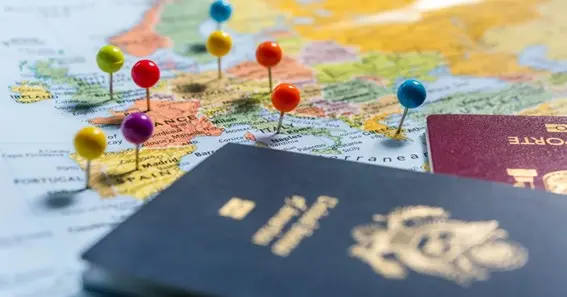The question “Can a felon get a passport?” is common among individuals with criminal records who wish to travel internationally. Understanding the eligibility requirements and potential restrictions is crucial for those seeking to navigate the process successfully.
Eligibility Criteria for Felons Applying for a U.S. Passport
In the United States, having a felony conviction does not automatically disqualify an individual from obtaining a passport. However, certain conditions can impede the application process:
- Outstanding Warrants: Individuals with active federal or state warrants are ineligible for a passport until the legal issues are resolved.
- Parole or Probation: Those currently on parole or probation may face restrictions on international travel, often requiring court or probation officer approval.
- Drug Trafficking Convictions: Felony drug trafficking convictions, especially those involving international borders, can lead to passport denial or revocation.
- Unpaid Child Support: Owing $2,500 or more in child support can result in passport application denial.
Application Process for Felons
Felons must follow the standard passport application process, with additional considerations:
- Complete the Appropriate Form: Use Form DS-11 for first-time applicants or Form DS-82 for renewals, ensuring all information is accurate.
- Provide Proof of Citizenship: Submit a certified birth certificate, naturalization certificate, or an existing passport.
- Present Identification: A valid driver’s license or state-issued ID is required.
- Include Passport Photos: Two recent, compliant passport photos must be provided.
- Disclose Criminal History: Be honest about felony convictions, as failure to disclose can lead to application denial.
- Pay Applicable Fees: Ensure all fees are paid at the time of application.
- Await Processing: Processing times may vary, and additional scrutiny is possible for applicants with criminal records.
Travel Restrictions for Felons
Obtaining a passport does not guarantee entry into all countries. Many nations have strict entry requirements for individuals with felony convictions:
- Canada: Generally denies entry to individuals with felony convictions unless a special waiver is obtained.
- United Kingdom and Australia: May refuse entry to those with serious criminal records.
- Japan: Requires disclosure of criminal history and may deny entry based on the nature of the offense.
It’s essential to research the entry requirements of the destination country before planning travel.
FAQ
- Can a felon apply for a passport while on probation?
- While a felon can apply, obtaining a passport during probation may require court or probation officer approval, and travel restrictions are likely in place.
- Will a felony conviction prevent me from traveling internationally?
- Not necessarily. However, many countries have entry restrictions for individuals with felony convictions, so it’s crucial to verify the policies of the destination country.
- Can a felon get a passport if they have unpaid child support?
- No, owing $2,500 or more in child support can result in passport application denial.
- Are there specific crimes that disqualify someone from getting a passport?
- Yes, convictions for international drug trafficking and certain federal offenses can lead to passport denial or revocation.
- How can a felon improve their chances of obtaining a passport?
- Ensuring all legal obligations are fulfilled, such as completing sentences and paying fines, and providing honest information during the application process can improve the likelihood of approval.
Understanding the nuances of passport eligibility for felons is essential for navigating international travel plans. By adhering to legal requirements and being informed about potential restrictions, individuals with felony convictions can better prepare for the passport application process and subsequent travel endeavors.








